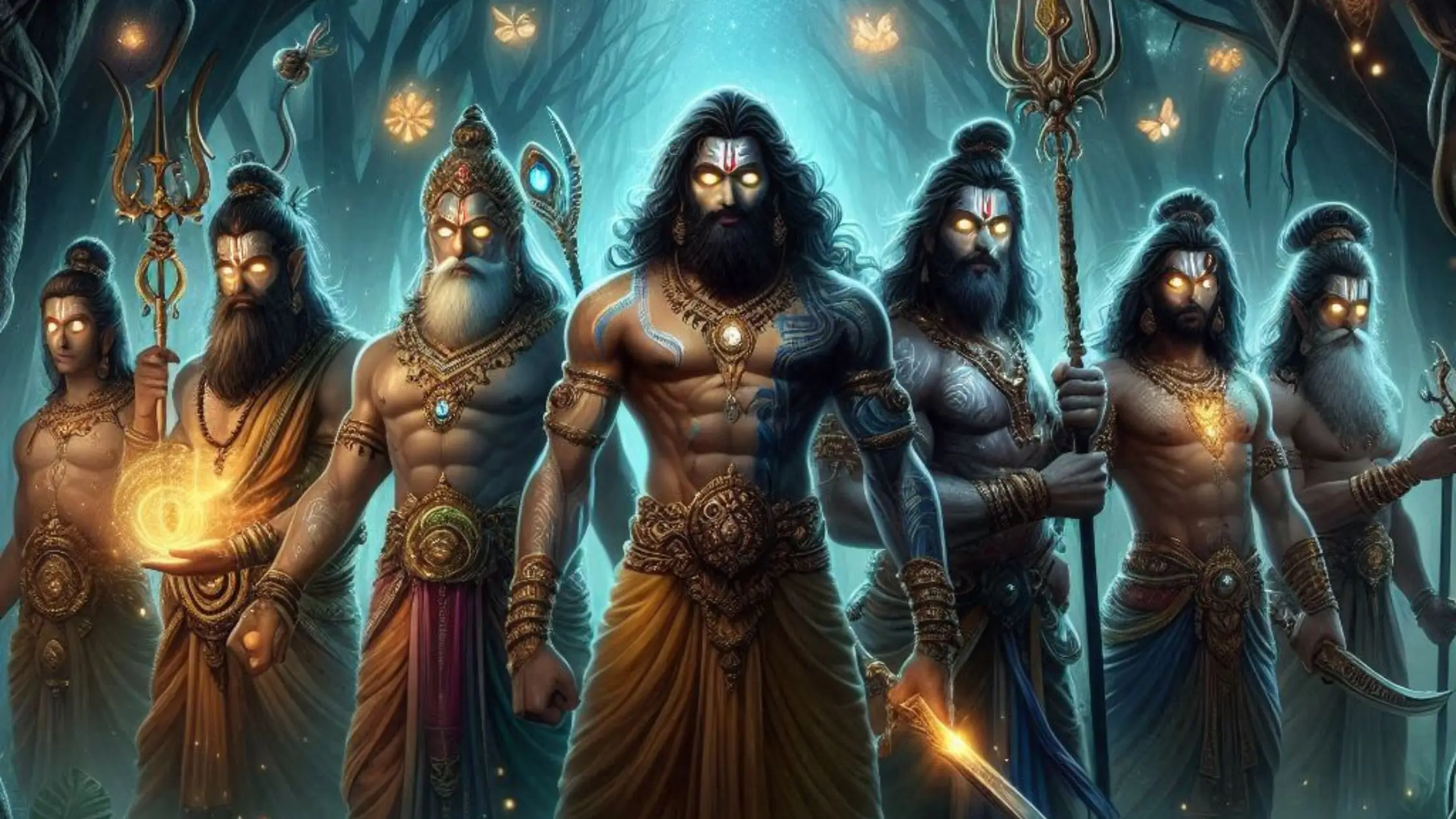7 Immortals in Hindu Mythology
Throughout the vast expanse of Hindu mythology, tales of valor, devotion, and cosmic justice intertwine with the concept of immortality. Several legendary figures, bestowed with the blessing of eternal life, continue to captivate the imagination of many.
These immortals, each with unique stories, symbolize the enduring nature of righteousness, loyalty, and divine will. Let us explore the lives of these enigmatic beings and their journeys to immortality.
1. Ashwatthama: The Cursed Warrior
Ashwatthama, the son of Guru Drona and an avatar of the Rudras, is a central figure in the Mahabharata. Blessed by Lord Shiva, Ashwatthama was born immortal with a jewel on his forehead that protected him from fear, weapons, hunger, and disease.
However, his allegiance to the Kauravas during the Kurukshetra war and subsequent atrocities led to a severe curse from Lord Krishna. Deprived of his jewel, Ashwatthama was condemned to wander the earth with an unhealing wound, suffering leprosy and isolation for eternity.
Legends abound about sightings of Ashwatthama, including a recent claim by a doctor in Madhya Pradesh who reported treating a patient with an unhealing forehead wound, raising questions about the warrior’s continued existence.
2. Hanuman: The Devoted Servant of Lord Rama
Hanuman, the epitome of devotion and strength, played a crucial role in the Ramayana. His unwavering loyalty to Lord Rama earned him the boon of immortality from Sita and the gods. Hanuman’s immortality ensures he remains present wherever Rama’s name is chanted, continuing to inspire devotees.
Stories recount Hanuman’s selfless acts, including his journey to Lanka to find Sita and his miraculous demonstration of loyalty by revealing Rama, Sita, and Lakshmana in his heart. Hanuman’s presence at every Rama Katha symbolizes his eternal guardianship over those who revere Lord Rama.
3. Veda Vyasa: The Sage of Wisdom
Maha Rishi Veda Vyasa, the author of the Mahabharata and a revered sage, represents wisdom and vision. Known as an incarnation of Lord Vishnu, Vyasa is credited with classifying the Vedas. He lived through the end of Tretayuga, all of Dwaparyuga, and the beginning of Kaliyuga.
Legends suggest that Vyasa did not die but chose to reside in seclusion, continuing to impart his wisdom to those who seek it.
4. Vibhishana: The Righteous Brother
Vibhishana, Ravana’s younger brother, is a beacon of righteousness in the Ramayana. His opposition to Ravana’s abduction of Sita and subsequent alliance with Lord Rama highlight his moral integrity.
After Ravana’s defeat, Vibhishana was crowned king of Lanka and blessed with immortality, ensuring his continued guidance over Lanka’s people. Vibhishana’s story underscores the triumph of virtue over vice.
5. Parshuram: The Warrior Sage
Parshuram, the sixth avatar of Lord Vishnu, is renowned for his martial prowess and mission to eradicate evil. His immortality is linked to the prophecy in the Kalki Purana, which foretells Parshuram’s return as a martial guru to train the final avatar of Vishnu, Kalki, in the art of warfare.
Parshuram’s eternal presence symbolizes his role as a guardian against adharma (unrighteousness).
6. Mahabali: The Benevolent Demon King
Mahabali, an Asura king, is celebrated for his generosity and devotion. During Lord Vishnu’s Vamana avatar, Mahabali willingly surrendered his kingdom and himself, leading to his banishment to the underworld but also earning him immortality.
Every year, Mahabali returns to visit his people, a day celebrated as Onam in Kerala, reflecting his enduring bond with his subjects.
7. Kripacharya: The Unbiased Teacher
Kripacharya, a significant figure in the Mahabharata, was born from sage Sharadvan’s semen dropped on the ground. Known for his impartiality and dedication, Kripacharya fulfilled his duties as a teacher and warrior despite foreseeing the futility of the Kauravas’ cause.
His unbiased nature earned him the boon of immortality from Lord Krishna, allowing him to continue his righteous path eternally.
These immortal beings, whether through divine blessing or cosmic justice, embody various virtues and vices that shape their legends. Their stories not only enrich Hindu mythology but also offer timeless lessons on duty, devotion, and the eternal struggle between good and evil.
Disclaimer: I wanted to take a moment to clarify that some of the articles we have written are factually correct, supported by verified data and sources. These articles provide accurate information that our audience can rely on.
However, there are also articles that are based on personal opinions. While these pieces offer valuable insights and perspectives, it's important to recognize that they reflect the views of the authors and may not be universally applicable or agreed upon.
